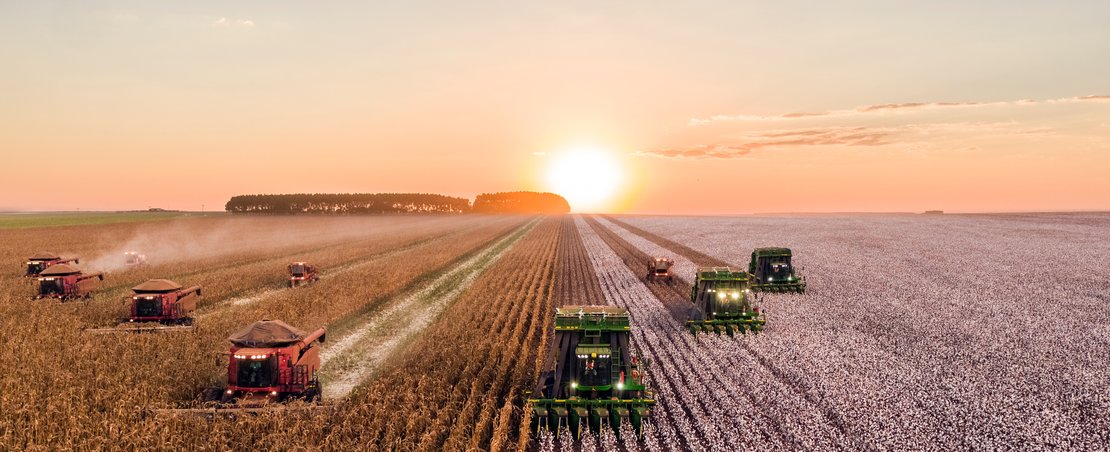
Data should be used responsibly and ethically, and good practices should extend beyond projects. The ODI has been working with CABI and GODAN to encourage good data management practice in Bill & Melinda Gates Foundation agriculture grants
By Fiona Smith and Pauline L'Hénaff
Agriculture is being transformed by data – especially open data – that is being used to help farmers, researchers and policymakers make more informed decisions.
Farmers use it to decide how and when to fertilise, plant or harvest; researchers use it to access crucial information; policymakers need it for evidence-based investments, and other groups can use it to make services more efficient across the agriculture value chain.
Earlier this year, we worked with the Bill & Melinda Gates Foundation to explore how to enhance data access and sharing within agriculture programmes in four regions, Andhra Pradesh and Odisha (in India), Ethiopia and Tanzania.
The foundation are committed to making the research they fund openly accessible and agree they need to accelerate the process to doing so. They wanted to understand the challenges that their grantees face in embracing this, and help them make data more FAIR – that is, findable, accessible, interoperable and reusable.
Our approach: building personas and mapping data ecosystems
Data interactions are complex. Decisions about what data to collect, who gets access to it, who benefits from its reuse, what standards and policies to follow, and who participates in this, are highly political and cultural. Countries and communities have different attitudes to these decisions, depending on their system of government, the culture of institutions, levels of trust between actors, and, often, their customs around sharing and trade.
To appreciate how these dynamics work in practice, we need to understand the broader environment within which data is stewarded.
Adopting a systems-thinking approach can help us see patterns in these interactions beyond individual projects. It can help us to identify gaps and opportunities to strengthen policy, engagement or capacity building in ways that have network benefits.
First, we created a series of personas to explore the challenges surrounding data access, sharing, and reuse.
Personas are imaginary characters that help us understand the needs, barriers, motivations and goals of real people. Based on interviews and workshops with stakeholders in each of the four regions, we created profiles such as researchers, project officers and innovators. The profiles describe their key objectives, pain points and learning needs in each context.
We then used the ODI’s data ecosystem mapping methodology to draw out the relationships and data flows between stakeholders attempting to solve a shared problem – for example, some of them were aiming to increase agricultural productivity by developing a soil information service.
We found this method helpful for communicating how data is accessed, shared and used. It helped the foundation to see where value from data is created, and where there are barriers.
Using visualisation tools
Working with visualisation tools like kumu helped us to bring these ecosystem maps to life in a more interactive, dynamic way. This map takes you through a typical data ecosystem within a Gates Foundation programme, and the different personas involved.
For each persona, you can:
- see where they sit in the ecosystem
- access more detailed information about them (their goals, pain points and learning needs)
- access a list of key tools identified for them
Once we had mapped each data ecosystem, we wanted to develop some practical learning resources that could help different personas overcome some of their challenges.
We gathered existing key guidance and tools within the open data and agriculture community. Where we found gaps and unmet demand, we developed some new resources. They include checklists for developing data inventories, data-sharing agreements and data management plans.
Learning from common challenges
Through our research, we found some common issues that affect data access and sharing in Gates Foundation agriculture programmes. (You can find more detail in our project report).
- Local context is a key factor in shaping a data ecosystem, eg whether there is a national data policy, whether data collection is centralised, and levels of trust between actors;
- Data is generally not very discoverable
- Pain points are mainly institutional, but data quality is still low in some contexts
- Different actors have different learning needs in order to effectively engage with a data ecosystem
- Monitoring of data management is not emphasised enough by funders
When we presented these findings to the team at the Gates Foundation, it was a real ‘lightbulb’ moment, as project officers began to see data existing within a dynamic ecosystem. They could see connections between different individual projects and common pain points. Opportunities to collaborate more or resolve grey areas became clearer. As one programme officer said:
"We can't ignore these data ecosystems anymore. We'll create problems for our grantees and partners if we [do].”
What next: testing and iterating our approach
We want to test and iterate these approaches and tools with more programmes and regions. We hope to introduce more systems-thinking around managing data, and continue to support people and organisations to get the most value from data while building a trustworthy data ecosystem.
We hope that a range of people and organisations pick up the tools, test them out, and feed back on what might be missing or how they could be improved.
We’ve published a summary of the tools and user guide. All the outputs we produced are ‘work-in-progress’ and published under an open licence for anyone to use, share and improve.
We are delighted that the foundation has chosen to make these resources – and other non-peer-reviewed research they fund – openly available on the F1000 'Gates Open Research' platform. This is a good step forward to support researchers with data management and open access.
Let us know your thoughts by contacting [email protected] or [email protected].
Image by Joao Marcelo Marques, source: Unsplash.